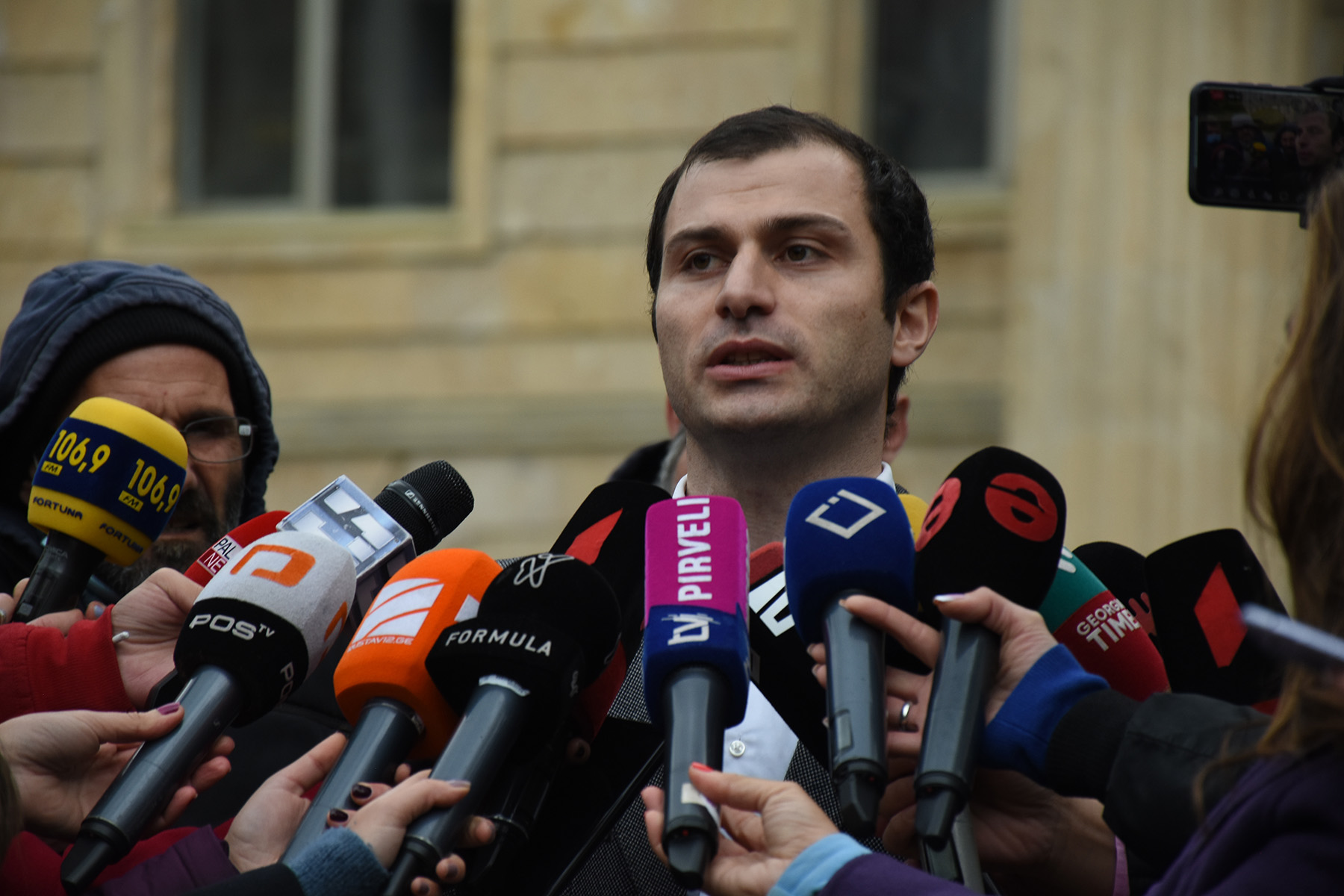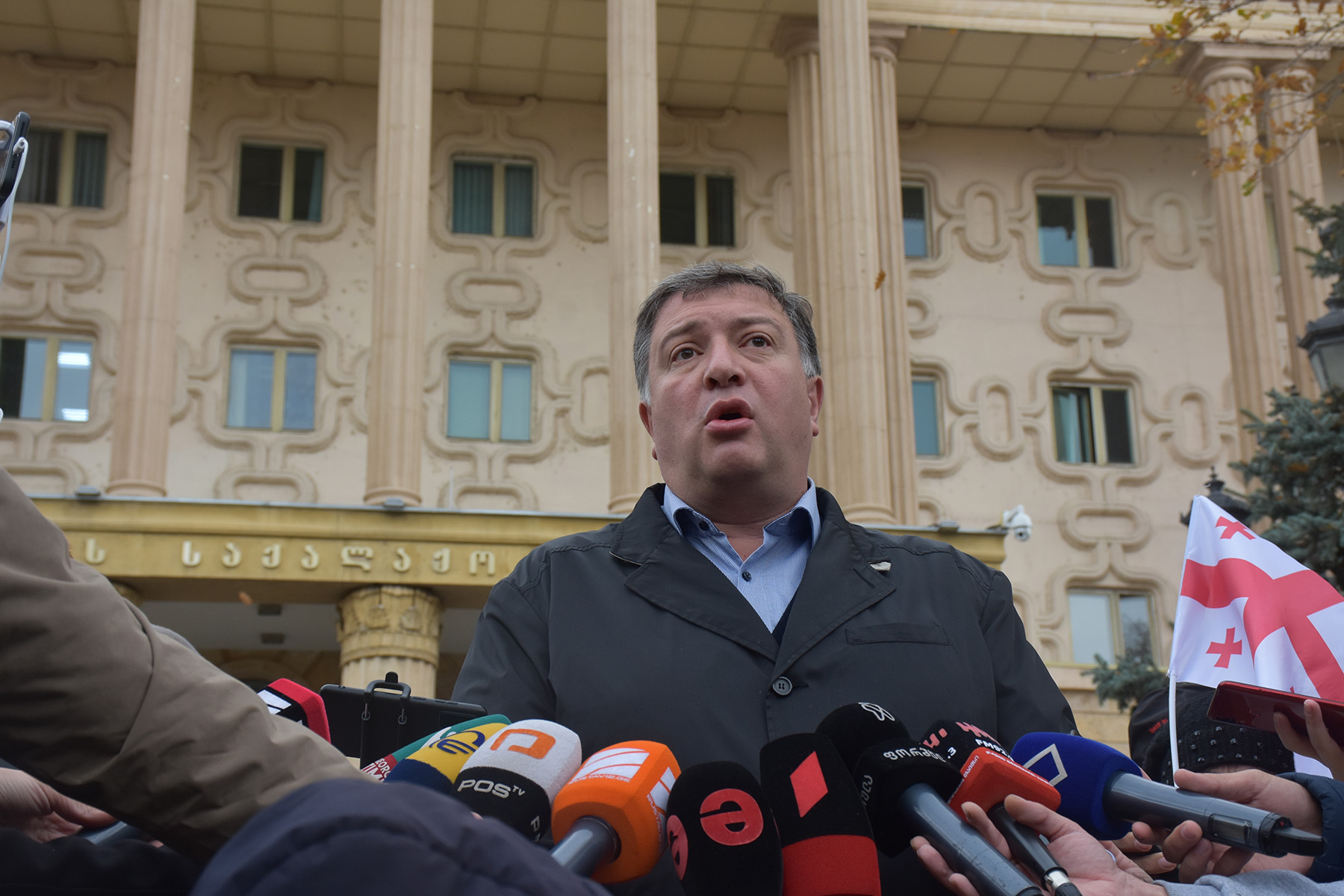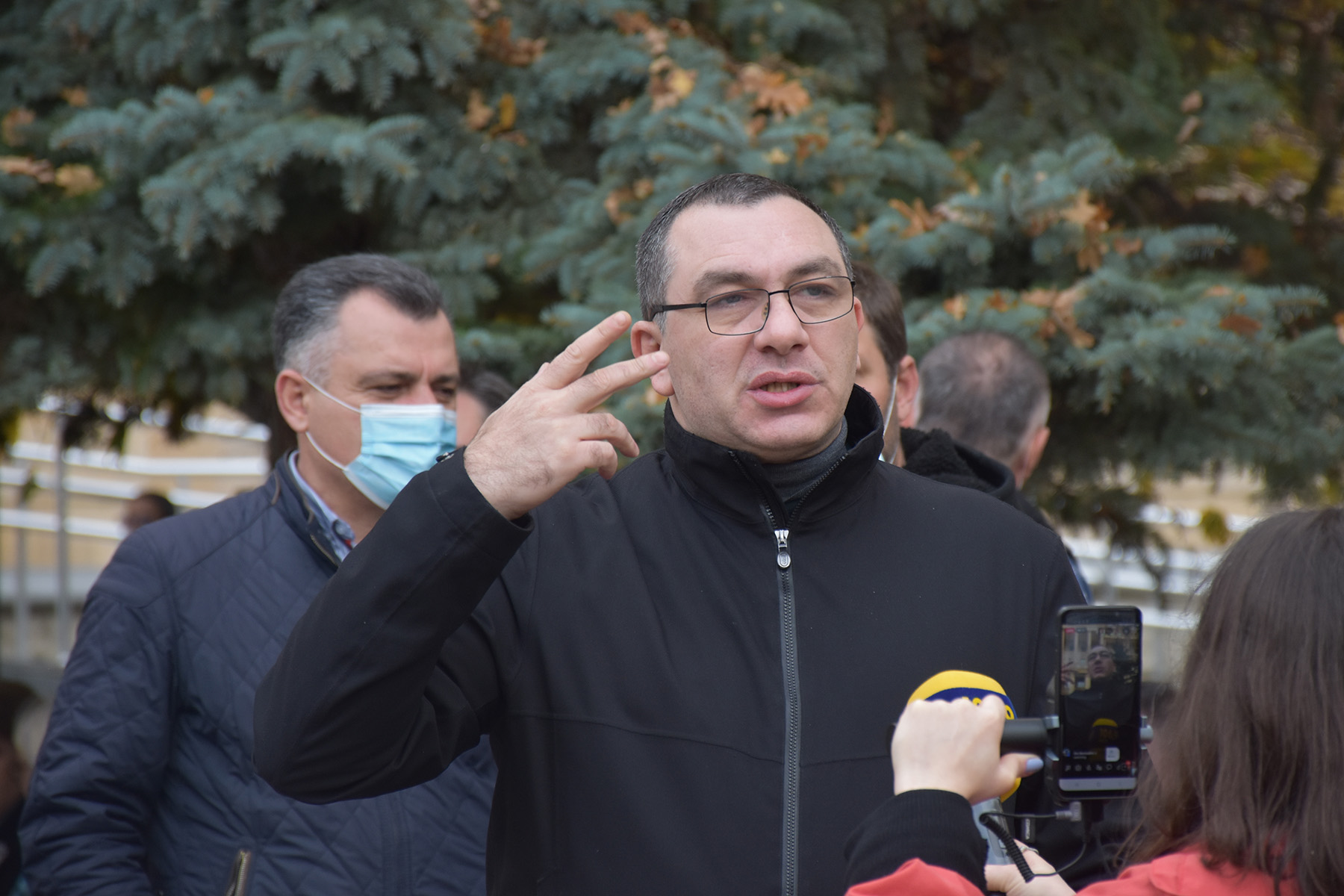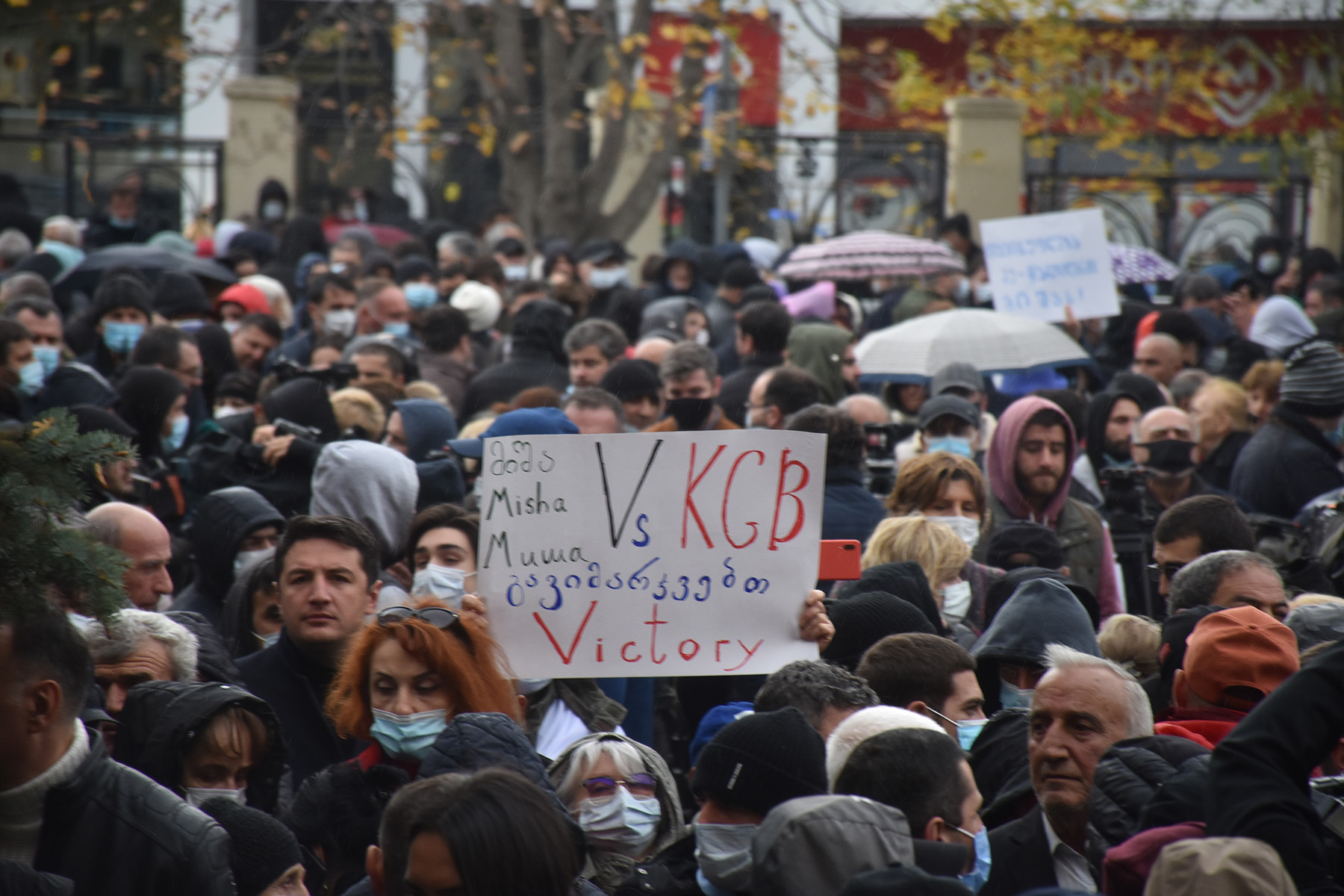
The trial of third Georgian President Mikheil Saakashvili concerning crimes he is accused of committing 14 years ago has begun, despite the authorities preventing the former president from attending court.
As his hearing in Tbilisi City Court got underway on Wednesday, supporters of Saakashvili gathered outside the building along with a heavy police presence.
The case concerns the 7 November 2007 police raid on TV channel Imedi and violent dispersal of an anti-government demonstration the same day, as well as the seizure of Imedi and other assets from the family of Badri Patarkatsishvili. Patarkatsishvili was a Georgian tycoon leading the opposition forces against Saakashvili at the time.
Saakashvili was charged with the crimes in August 2014, several months after he left Georgia following the end of his presidential tenure. The former president, who has been on hunger strike since his arrest in Georgia on 1 October, has already been convicted on several counts of abuse of power.
Absent defendant
As crowds gathered outside the court on Wednesday, the Special Penitentiary Service announced that Saakashvili would not be present at the hearing despite his wishes to be, citing ‘additional risks’ to his health.
The Penitentiary Service also claimed there was a risk that his transfer from Gldani Prison to the courthouse would be obstructed. They cited a similar claim by the State Security Service (SSG) on 29 October that Saakashvili’s supporters had planned to block his transfer to another prison with their own cars.

Guram Imnadze, a lawyer from the Tbilisi-based rights group the Social Justice Centre, said that limiting the right to be present at one’s own trial warranted a higher standard of justification than the ‘very vague’ and ‘hypothetical’ explanations offered by the authorities.
‘We are not seeing any charges brought against anyone by the SSG or the Prosecutor’s Office for preparing the crimes that have been cited’, he said. ‘Clearly, doubts emerge about how well-grounded and well-argued the statement by the Penitentiary Service is.’
Imnadze said that by law, in the event of a failure to deliver a defendant to court, the court should postpone the hearing for a maximum of 10 days. The Special Penitentiary Service must also ‘ensure the attendance of the accused at the next session’, he said.

Saakashvili’s lawyer, Shota Tutberide, told OC Media that judge Nino Elieshvili had dismissed a suggestion by the prosecution to connect Saakashvili to the hearing online, stating that he would be present at the next hearing.
The next hearing is scheduled for 29 November.
Giga Bokeria, chair of the opposition European Georgia party and a former member of Saakashvili’s administration, was among the political leaders present outside the court.

‘[The government’s] aim is to show that they can get away with anything and to demoralise the public so it’s important that however long it takes, a wide spectrum of society gets involved in this [protest]’, Bokeria told OC Media shortly after learning Saakashvili would not be delivered to the court.
‘We had to catch Saakashvili or he had to leave politics’
Suspicions have been raised that the case against Saakashvili, and his treatment in prison, may be politically motivated.
Since his departure from Georgia in 2013, Saakashvili’s United National Movement (UNM) have insisted that he was given a choice to leave Georgia or to face criminal prosecutions.
Prime Minister Irakli Gharibashvili’s statements following his arrest have only strengthened such suspicions among critics.
‘Saakashvili, with his broadcasts on YouTube and TV bridges, was a lot and a challenge for us. Why? For one, he spoilt our relationship with Ukraine, and second, everyone got tired [of him]’ Gharibashvili said on 3 October, days after Saakashvili sneaked himself into Georgia and was subsequently arrested.
‘We had to catch Saakashvili or he had to leave politics’, he added.

International criticism has also grown since Saakashvili’s transfer to a prison in Gldani on 9 November. These included from the US State Department, whose spokesperson urged the Georgian government to ensure that his rights were respected.
‘We continue to urge the Government of Georgia to treat Mr Saakashvili fairly and with dignity in accordance with international standards and Georgian law’, they said.
Giorgi Gogia, the Associate Director for Europe and Central Asia at Human Rights Watch, also urged the authorities to respect Saakashvili’s rights.
‘His case is complicated, but some of the human rights issues are clear. His rights to [a] fair trial, healthcare, privacy and dignity [are] at risk’, he tweeted.
Saakashvili is already facing six years in prison after being convicted in absentia of ordering an attack on government critic Valeri Gelashvili in 2005 and illegally promising a pardon to law enforcement officers implicated in the 2006 murder of Sandro Girgvliani.
He also faces further charges of embezzling over ₾9 million ($2.9 million) during his presidency, and illegal border crossing following his return to Georgia.







